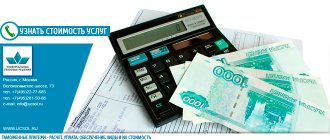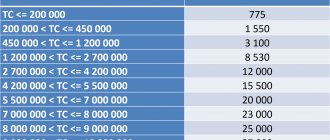Customs duty is a tax on the transportation of various goods from one country to another. In essence, this is a payment for the fact that products cross the state border. Exceptions are made by associations of countries that have a single trade space, which, accordingly, is called duty-free. For example, a customs union or the European Union.
Types of payments
The Customs Code of the Eurasian Economic Union implies the payment by subjects of foreign economic activity of the following payments:
- import customs duty;
- export customs duty;
- value added tax levied when importing goods into the customs territory of the Union;
- excise taxes (excise tax or excise duty) levied when importing goods into the customs territory of the Union;
- customs duties.
Customs duty is a mandatory payment that is collected. It can be imported or exported. The import tax is paid when goods are imported, and the export tax is paid when exporting. The amount of duty may vary depending on the type of cargo being moved. They are provided for by a single tariff that operates in the Eurasian Economic Union. Customs duties are mandatory for legal entities and individual entrepreneurs. For individuals, no duty is charged if goods for personal use are transported. This applies only to cargo in reasonable quantities that do not allow such a delivery to be called commercial.
VAT or value added tax is a type of customs payment that is paid during customs clearance of goods into the territory of the country. Its size, depending on the product category, is 10% or 18%. There is also a preference for certain groups of goods when VAT is not charged.
Excise tax is a type of tax that is levied only on certain groups of goods. These primarily include tobacco products, as well as petroleum products, vehicles and alcohol. The amount of excise tax is also determined depending on what goods are imported or exported.
Customs duty is a mandatory payment that is charged for the provision of customs control and clearance services.
Features of taxation
Keep records of exports and imports using the simplified tax system in the Kontur.Accounting web service.
Currency accounting and work instructions, taxes, automatic salary calculation and reporting in one service Get free access for 14 days
There are no new taxes when conducting foreign trade. You will, as always, have to pay VAT, income tax and excise taxes. But with foreign economic activity there are 4 differences in these taxes:
- the procedure for calculating and collecting taxes is changing;
- the right to deduction is retained, but the procedure for obtaining it and the list of required documents are changed;
- the concept of customs value, which is the tax base, is introduced;
- operations with certain groups of goods have special features.
In addition to taxes for importing or exporting goods, you will also have to pay customs duties. Customs is another controller of your activities besides the Federal Tax Service. She is responsible for currency control of transactions of Russian entities with foreign partners. Let's look at each tax on the import and export of goods.
Methods for calculating customs duties
Customs payments are a collective concept that includes several types of mandatory payments that must be transferred to the budget account for the export or import of goods. They are calculated depending on the type of cargo being transported.
It is worth paying attention to the fact that all customs payments must be paid in the currency of the country in which the clearance takes place. To make calculations, you must first determine the customs value of the goods. It is expressed as the sum of the cost of the cargo and the costs of delivering it to the border. The cost of the goods is determined in the invoices issued by the seller of the goods and specified in the foreign trade contract.
Shipping costs must also be documented. To do this, you must provide a document from the carrier who provided the transportation of the cargo.
Income tax on export and import
Keep records of exports and imports using the simplified tax system in the Kontur.Accounting web service. Currency accounting and work instructions, taxes, automatic salary calculation and reporting in one service Get free access for 14 days
Profits from foreign trade activities are taxed at a rate of 20%. Income is the result of exports, since we sell goods to a foreign counterparty. Imports do not generate income - these are our expenses.
When exporting products, partners will transfer foreign currency to you. For tax purposes, it is necessary to recalculate it at the Central Bank exchange rate.
Import costs are expenses that reduce the income tax base, so be careful when calculating them. All costs associated with the import of goods, including the cost of customs brokerage services, must have supporting documents. Only then can they be recognized as expenses.
You will pay for goods and services in foreign currency. To calculate the tax base, recalculate all costs at the rate of the Central Bank of the Russian Federation.
During foreign economic activity, exchange rate differences will arise, which can be your income or expense. You can read more about exchange rate differences in our article on accounting and tax accounting for foreign trade activities.
Calculation of transaction value for identical goods
Another common method is to calculate the cost of a transaction with identical goods. This method can only be used in cases where another cargo with similar characteristics is delivered in the same period of time, which allows us to draw an analogy between their costs.
The technique is appropriate when the declarant does not have the opportunity to provide the entire list of necessary documents. In this case, the responsibility for drawing an analogy with an identical transaction falls on the declarant. If in the given example the cargo volume or some characteristics differ, then an adjustment is made using a mathematical proportion. If there are several similar examples of transaction costs for imported goods, then the lowest of them is taken as the basis for the calculation.
The role of customs duties
In addition to the political aspect, the use of a regulatory mechanism that has a direct or indirect impact on trade requires a competent management approach. Many experts in the field of economics note that excessive enthusiasm for tariff adjustments leads to crisis situations when the domestic market reacts to outside interference that is unnatural for its development.
So, for example, an aggressive anti-dumping policy can cause a shortage of a certain category of goods, or a drop in their quality due to the virtual lack of competition - in both cases, the end result is an increase in retail prices that the mass consumer has to face.
Rates of the Common Customs Tariff of the Eurasian Economic Union
When calculating customs duties, the following duty rates are applied:
- ad valorem;
- specific;
- combined.
Ad valorem provides a fixed interest rate on the total cost of the goods before crossing the border of the Customs Union. The rate for each type of goods is different. A specific tariff implies a certain amount that is paid per unit of goods. It can be calculated for each piece, liter, kilogram, and so on. A combined rate implies the use of both calculation methods. The tariff whose amount turns out to be more is taken into account.
Deadlines for calculating duties on the export of goods from Russia
Article 329 of the Trade Code of the Russian Federation establishes the following types of deadlines:
- When exporting goods beyond the customs border of the Russian Federation, there are no time limits for the payment of customs duties. It is determined by an event that is directly related to the emergence of the obligation to pay customs duties - the submission of a declaration to the customs authorities. Certain exceptions apply to some periodically declared goods, as well as to substances transported by pipeline.
- In case of a change in the customs regime, fees must be paid within the day of expiration of the changed customs regime.
- If conditionally released cargo is used for other purposes , the deadline for payment of export fees is the day on which the violation of the restrictions on the disposal and use of the goods occurred. If it is impossible to determine such a day, the payment deadline is the day on which the customs authority accepted the declaration.
- If an entrepreneur has violated the requirements of customs operations and is obliged to pay customs duties, the deadline will be considered the day on which the violation took place (issuance without permission from the customs organization or loss of goods moved through intra-customs transit, temporarily stored or under the customs regime of a customs warehouse, duty-free site trade). If it is impossible to establish this day, payment of customs duties must be made during the day on which such operations started (the day the cargo was delivered to the customs site, the day a paper permit for intra-customs transit was received, the end day, the day the cargo was placed under the customs regime).
- The period for calculating customs duties when applying special customs operations is assigned separately for each operation. For example, individuals with hand luggage or accompanied luggage pay customs duties when crossing the Russian border.
The deadline for payment of export customs duties is the period of time for which it is necessary to pay the amounts of customs duties, or an incident due to which the Code obliges to pay customs duties.
Evasion of customs duties and types of benefits
Failure to pay customs duties is unacceptable and punishable. For this, fines are imposed, and a penalty is also charged. In some cases, administrative arrest may be applied to violators. Punishment for evasion is always used, except in cases where, according to certain benefits, customs duties are not paid. There are various cases provided for by law when certain benefits apply.
The most common type of benefits are tariff preferences. They imply exemption from duties on certain groups of goods that arrive from partner countries. To do this, a free trade zone deal must be concluded with them.
There are also the usual tariff benefits that apply to a group of goods from those countries that have entered into a mutual deal to reduce duties on certain types of cargo. This is possible in cases where the benefit is provided both in the country of origin of the goods and in the country of their delivery.
Benefits include a reduction in the amount of VAT paid when importing goods into the Russian Federation. First of all, this applies to types of technological equipment that are not produced in Russia.
Specifics of import duties in the Russian Federation
Government regulation of foreign economic activity implemented in the Russian Federation provides for the division of duties into several levels. In particular, rates are differentiated for raw materials and for finished products, as well as semi-finished products that have undergone partial processing. In addition, the nature of origin and specificity of the goods are important. So, for example, food products, household appliances or clothing may be subject to an additional burden of thirty percent or more, while imports that are important to the population, be it medicines or baby food, are often completely exempt from duties in order to ensure an affordable retail price.
Apply for cash settlement services (SSC) at SEA BANK and receive up to 6% on your account balance.
Payment procedure and terms
Customs duties must be paid by the declarant. They are deposited into the account of the customs authority, which controls the declared goods after the customs value has been announced. Legal entities and individual entrepreneurs do this by bank transfer.
The actual transfer of customs payments to the account of the customs authority must be made in the form of an advance before the completed customs declaration is submitted for control. This is necessary to register the declaration in the customs database.
If the advance payment turned out to be higher than the amount that was actually needed, the excess can be returned upon the appropriate application of the declarant.
It is worth noting that without proper experience it is quite difficult to understand how the declaration is filled out and how customs duties are calculated. In this regard, it can be very difficult to do without the help of a customs representative. To eliminate stopping factors, it is better to enlist the support of professionals. This will prevent the imposition of fines, as well as the accrual of penalties and administrative arrest, which has already become common for such violations that are committed without direct intent, but due to ignorance or errors in calculation.
Contact JSC specialists for advice and comprehensive support!
We guarantee a qualified approach and strict observance of the interests and legal rights of clients. Find out the cost of customs clearance
How does a duty differ from a tariff?
Definitions that, from the point of view of ordinary people, characterize one and the same phenomenon are in fact not identical in content. In the first case, we are talking about a certain fee that is levied on each product crossing the territorial borders of the state, regardless of the specific nature of the transportation - export, import or transit. This, at its core, is a fiscal tax instrument, regulated by legislative norms, and guaranteeing timely replenishment of the budget, the size of which is determined based on the expected volumes of trade turnover with various countries.
The customs tariff applied within the framework of foreign trade regulation is a register of commercial products to which duties are applied.
MARINE BANK provides a service for foreign economic activity, which implies preferential conversion, free registration of contracts, agreements, as well as free currency transfers.
We can say that the concepts actually complement each other, characterizing the interrelated elements of a single system. It should be taken into account that in different countries legal terminology allows for different interpretations, including those that are directly opposite to the meaning familiar to domestic entrepreneurs. Eliminate errors thanks to professional advice, organize competent foreign exchange control, and also get the opportunity to quickly complete financial settlements with foreign counterparties - all these are options available to clients of SEA BANK.









